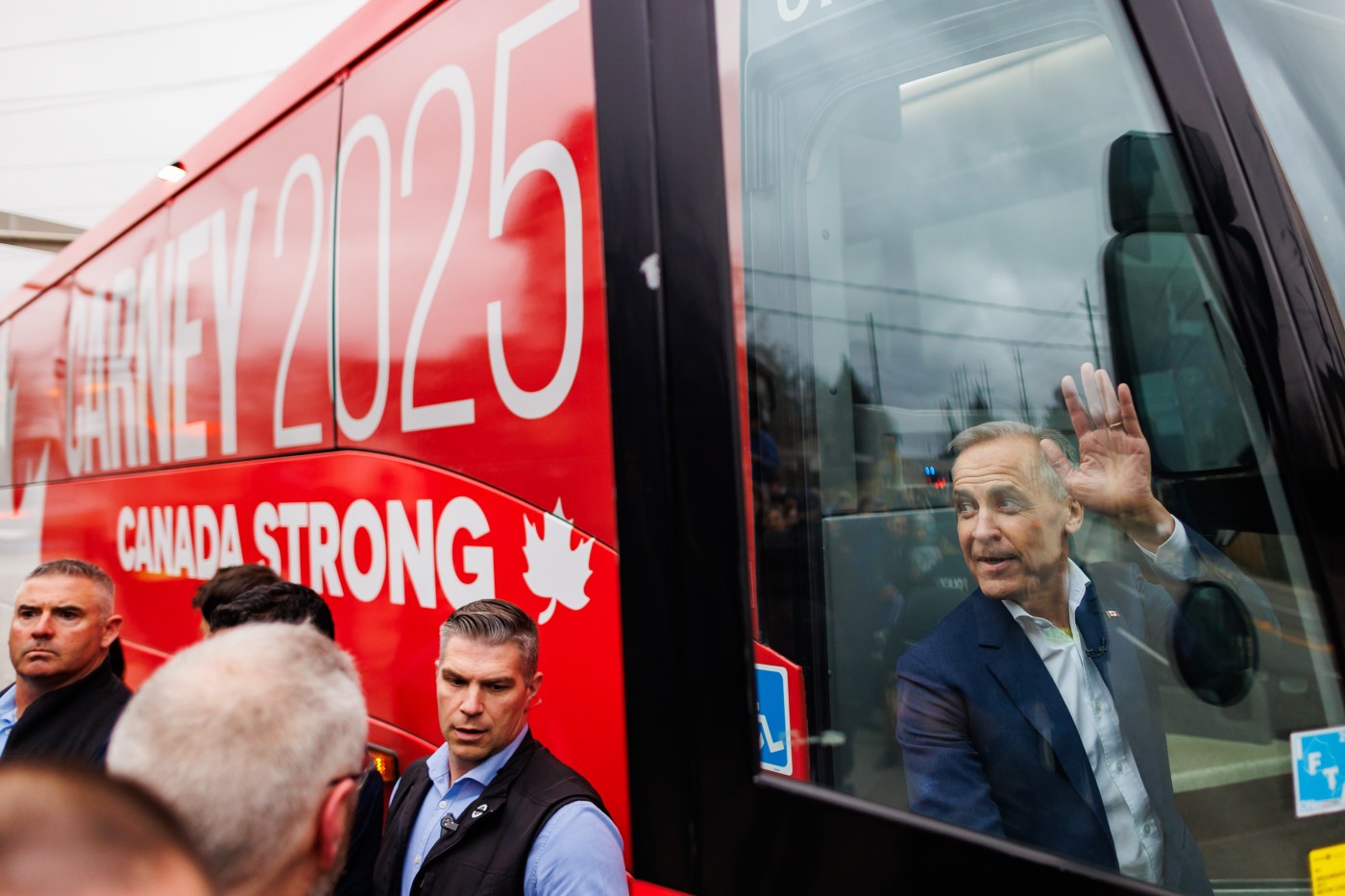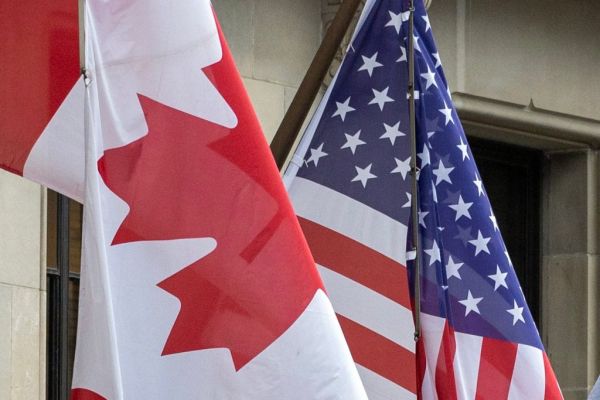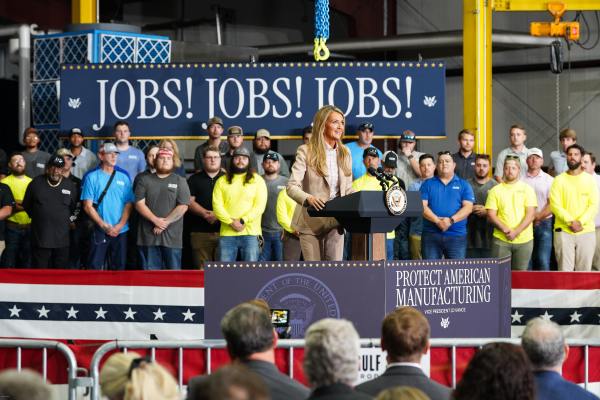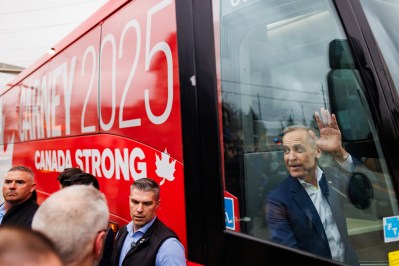Ken Boessenkool is a longtime inside player at the highest level of Conservative politics in Canada, and there are a couple of political inversions—weird things at least from the U.S. point of view—that he thinks we south-of-the-border types need to know about as his country advances toward a snap election in which the party of the center-left, woefully behind in the polls only a few months ago, is expected to romp to victory.
The first of them is that the usual polarized politics of age—youngsters on the left, oldsters on the right—is at least partly turned upside-down right now, with the Conservatives polling unusually well among younger voters and the Liberals showing strength with the older ones.
And the reason for that is the second item, a quirk of Canadian politics that sets it apart from the rest of the Anglophone (yes, put in whatever is Québécois French for an asterisk) countries: In Canada, the party of nationalism is the left-leaning party, not the right-leaning one—the rally-to-the-flag effect pushes Canadian voters in the direction of the Liberal Party, whose logo is pretty much just the Canadian flag and which as a party has long been associated with major nationalist initiatives in Canada, most prominently the “patriation” of the Canadian constitution, which ended the role of the U.K. parliament in Canadian political life and secured full Canadian sovereignty in 1982. The Liberals are the party of abortion and universal health care, sure, but also the party that takes credit for building the navy and creating the Canadian Charter of Rights and Freedoms, Canada’s version of the Bill of Rights.
That a left-leaning social-welfare party would also be the party of nationalism is, of course, old news to readers of Jonah Goldberg or to students of the New Deal, but it does run against the grain of contemporary political assumptions. In Canada, the Conservatives are a party of market-oriented economic reformers and the Liberals are a party of big-government corporatists and nationalists—hence the leftward stampede of Canadian voters in response to Donald Trump’s insults, threats, and abuse.
Ken Boessenkool“In January, there was a 99 percent chance Pierre Poilievre was going to win a majority government; today, there is a 75 percent chance the Liberals will form a majority government. Only one thing has changed between January 15 and now.”
But that nationalist sentiment is not uniformly distributed throughout the Canadian population, as Boessenkool notes. “In Canada, if you’re over 45, Trump is all you’re thinking about. If you’re under 45, all you’re thinking about is that you can’t afford a home. People under 45 are voting for [Conservative leader] Pierre Poilievre to fix the housing crisis—and it is a crisis. People over 45 are voting for Mark Carney to be more of an adult in the room to deal with Trump.” Boessenkool, a senior adviser to former Prime Minister Stephen Harper and longtime collaborator with Preston Manning (founder of the Reform Party that evolved into the modern Conservative Party of Canada), is as deep-dyed a Conservative as you are likely to find, but he is not at all begrudging in his assessment of Carney, whose Liberal Party is all but guaranteed to win the election on April 28: “Trumpy politics in the U.S. is driving our politics in the opposite direction, and Carney is the anti-Trump: He is smart, he has a résumé, he speaks in complete sentences. He is boring.”
But Carney did say something unusually interesting for a Canadian PM, at least to U.S. ears: The longstanding cooperative relationship between the neighbors and allies “is over,” he said a week ago. His task going forward, as he describes it, is to help Canada chart a new and more independent course—one that will be informed by the politics and principles of the center-left rather than by the Conservatives.
“If the election were held right now, the Liberals could win six to 10 seats in Alberta”—a Conservative stronghold—“and they haven’t won more than one seat there in 40 years,” Boessenkool says. “In January, there was a 99 percent chance Pierre Poilievre was going to win a majority government; today, there is a 75 percent chance the Liberals will form a majority government. Only one thing has changed between January 15 and now.”
The real question for Conservatives isn’t how badly they’re going to lose but how badly the country’s second left-leaning party, the social democrats in the New Democratic Party, are going to lose. The Conservatives are at best a 40 percent party, and their electoral success in past decades has depended on splitting the left-wing vote. “If the New Democrats get wiped off the map and the left doesn’t split, then Conservatives can’t win elections,” Boessenkool says. “If we move from a three-party system to a two-party system, it is going to force the Conservatives to look at their coalition, because a 40 percent coalition won’t be enough to build a government in the future.”
And so it is likely that we will see a Canada that not only is less open to Americans and less inclined to advance U.S. interests but that also is economically and politically worse off than it otherwise could be thanks to the entrenchment of left-wing policies, which typically suffocate economic growth, dynamism, and entrepreneurship—a price that an already stagnant Canada can hardly afford to pay.
And that’s a strange bit of cosmopolitanism from the Trump gang: When it comes to helping conservatives to lose elections, Trump and his allies have not limited themselves to Wisconsin.







Please note that we at The Dispatch hold ourselves, our work, and our commenters to a higher standard than other places on the internet. We welcome comments that foster genuine debate or discussion—including comments critical of us or our work—but responses that include ad hominem attacks on fellow Dispatch members or are intended to stoke fear and anger may be moderated.
With your membership, you only have the ability to comment on The Morning Dispatch articles. Consider upgrading to join the conversation everywhere.